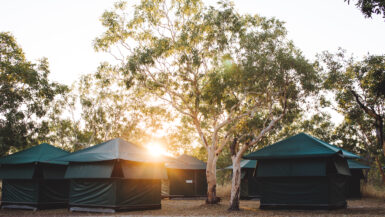Nestled in the heart of the Himalayas, Bhutan is a small country known for its stunning natural beauty and commitment to preserving the environment. With a strong emphasis on sustainability, Bhutan is home to some of the most eco-friendly camping sites in the world. From pristine forests to crystal-clear lakes, there are countless places to pitch a tent and immerse yourself in the country’s breathtaking landscapes. In this article, we’ll take a look at some of the best eco-friendly camping sites in Bhutan, where you can experience the beauty of the outdoors while minimizing your impact on the environment.
Introduction to Eco-Friendly Camping in Bhutan
Bhutan, the Land of the Thunder Dragon, is a small Himalayan kingdom that is renowned for its pristine natural beauty, rich cultural heritage, and commitment to sustainable development. The country’s unique approach to tourism, known as “high-value, low-impact” tourism, has earned it a reputation as an eco-tourism destination. In Bhutan, eco-friendly camping is one of the best ways to experience the country’s natural beauty while minimizing your impact on the environment.
Eco-friendly camping is a form of sustainable tourism that emphasizes responsible travel practices, such as reducing waste, conserving natural resources, and supporting local communities. Bhutan’s commitment to sustainable tourism is reflected in its national policies, which aim to protect the country’s environment and culture while promoting economic development.
This article will highlight some of the best eco-friendly camping sites in Bhutan, as well as provide tips for responsible camping and information on the involvement of local communities in eco-tourism. We will also discuss the importance of wildlife conservation and the future of eco-friendly camping in Bhutan. Whether you are an experienced camper or a first-time visitor to Bhutan, this article will provide you with valuable insights into eco-friendly camping in this unique and beautiful country.
The Importance of Sustainable Tourism in Bhutan
Bhutan’s unique approach to tourism is based on the principle of sustainable development, which seeks to promote economic growth while protecting the country’s environment and culture. The government of Bhutan has implemented policies that aim to limit the negative impacts of tourism, such as overdevelopment and environmental degradation, while maximizing the benefits to local communities and the economy.
Sustainable tourism is important for several reasons. Firstly, it helps to preserve the natural and cultural heritage of a destination, ensuring that future generations can enjoy it. In Bhutan, sustainable tourism has played a key role in protecting the country’s pristine environment and unique culture.
Secondly, sustainable tourism can provide economic benefits to local communities, creating jobs and generating income. This is particularly important in Bhutan, where many people rely on agriculture and traditional handicrafts for their livelihoods. Eco-friendly camping is one way that tourists can support local communities by using local guides, staying in locally-owned accommodations, and buying locally-produced goods.
Finally, sustainable tourism can help to reduce the overall environmental impact of travel. By adopting responsible travel practices, such as using eco-friendly camping gear and minimizing waste, tourists can help to reduce their carbon footprint and preserve the natural environment.
In conclusion, sustainable tourism is a vital component of Bhutan’s unique approach to tourism. By promoting responsible travel practices and supporting local communities, eco-friendly camping can help to ensure that the country’s natural and cultural heritage is preserved for generations to come.
Top Eco-Friendly Camping Sites in Bhutan
Bhutan is home to some of the most stunning landscapes in the world, from snow-capped mountains to lush forests and pristine rivers. Eco-friendly camping is one of the best ways to experience these natural wonders while minimizing your impact on the environment. Here are some of the top eco-friendly camping sites in Bhutan:
1. Jomolhari Base Camp
Located near the base of Jomolhari Mountain, this camping site offers stunning views of the mountain and its surrounding valleys. The site is run by a local community and provides eco-friendly camping facilities, including composting toilets and solar-powered showers.
2. Phobjikha Valley
Phobjikha Valley is a glacial valley that is home to the endangered black-necked crane. The valley is a popular eco-tourism destination and offers several eco-friendly camping sites that are run by local communities. Visitors can enjoy hiking, birdwatching, and cultural activities while staying in traditional Bhutanese tents.
3. Bumdra Monastery Trek
The Bumdra Monastery Trek is a popular trekking route that takes visitors through forests, meadows, and mountains to the Bumdra Monastery. Along the way, visitors can camp in eco-friendly campsites that are equipped with composting toilets and solar-powered showers. The trek also offers stunning views of the Paro Valley and the Himalayan Mountains.
4. Gangtey Valley
Gangtey Valley is a picturesque valley that is home to several eco-friendly camping sites. Visitors can camp in traditional Bhutanese tents and enjoy hiking, birdwatching, and cultural activities. The valley is also home to the endangered black-necked crane and offers opportunities for wildlife viewing.
In conclusion, Bhutan offers a range of eco-friendly camping sites that allow visitors to experience the country’s stunning natural beauty while minimizing their impact on the environment. Whether you are interested in trekking, birdwatching, or cultural activities, there is an eco-friendly camping site in Bhutan that is perfect for you.
Camping Equipment and Gear for Eco-Friendly Camping in Bhutan
When planning an eco-friendly camping trip in Bhutan, it is important to choose gear and equipment that is sustainable and environmentally friendly. Here are some tips for choosing the right camping gear for your trip:
1. Tents
When choosing a tent for eco-friendly camping, look for a tent that is made from sustainable materials, such as recycled polyester or organic cotton. Avoid tents that are coated with toxic chemicals, such as PVC or flame retardants. Choose a tent that is the appropriate size for your group to minimize your impact on the environment.
2. Sleeping Bags and Mats
Choose a sleeping bag and mat that are made from sustainable materials, such as organic cotton or recycled polyester. Look for sleeping bags that are rated for the appropriate temperature range to ensure that you stay warm and comfortable throughout your trip.
3. Cookware and Utensils
Choose cookware and utensils that are made from sustainable materials, such as stainless steel or bamboo. Avoid disposable items, such as paper plates and plastic cutlery, and choose reusable items instead. Bring a portable stove that uses renewable fuel, such as wood or propane, instead of relying on campfires.
4. Lighting
Choose lighting that is energy-efficient, such as LED lanterns or solar-powered lights. Avoid disposable batteries and choose rechargeable batteries instead.
5. Waste Management
Make sure to bring a waste management system with you, such as a composting toilet or waste bags that can be carried out with you. Minimize waste by choosing reusable items and avoiding disposable items.
In conclusion, choosing the right camping gear and equipment is essential for eco-friendly camping in Bhutan. By choosing sustainable and environmentally friendly gear, you can minimize your impact on the environment and enjoy your camping trip with peace of mind.
Tips for Responsible Camping in Bhutan
Responsible camping is an essential part of eco-friendly tourism in Bhutan. Here are some tips for camping responsibly in Bhutan:
1. Follow Leave No Trace Principles
The Leave No Trace principles are a set of guidelines that promote responsible outdoor ethics. These principles include minimizing campfire impact, packing out all trash and waste, and respecting wildlife and other visitors. By following these principles, you can minimize your impact on the environment and leave the campsite in the same condition as you found it.
2. Respect Local Culture and Customs
Bhutan has a rich cultural heritage that should be respected by all visitors. When camping in Bhutan, be respectful of local customs and traditions. For example, avoid loud music or behavior that could disrupt local communities or wildlife.
3. Support Local Communities
One of the best ways to support local communities in Bhutan is by using local guides and staying in locally-owned accommodations. This helps to ensure that the economic benefits of tourism are distributed to local communities.
4. Minimize Your Environmental Impact
Minimize your environmental impact by using sustainable camping gear and equipment, such as reusable water bottles and solar-powered lights. Avoid using disposable items and choose eco-friendly alternatives instead.
5. Learn About the Local Environment
Take the time to learn about the local environment and the wildlife that inhabits it. This can help you to appreciate the natural beauty of Bhutan and understand the importance of protecting it.
In conclusion, responsible camping is an essential part of eco-friendly tourism in Bhutan. By following these tips, you can ensure that your camping trip is both enjoyable and environmentally responsible.
Local Communities and Their Involvement in Eco-Friendly Camping in Bhutan
Local communities play a crucial role in eco-friendly tourism in Bhutan. Many eco-friendly camping sites in Bhutan are run by local communities, providing economic benefits and empowering local residents. Here are some ways that local communities are involved in eco-friendly camping in Bhutan:
1. Ownership and Management of Eco-Friendly Camping Sites
Many eco-friendly camping sites in Bhutan are owned and managed by local communities. This provides economic benefits to local residents and encourages them to take an active role in protecting the environment and promoting sustainable tourism.
2. Cultural Activities and Homestays
Local communities in Bhutan often offer cultural activities and homestays for visitors. These activities provide an opportunity to learn about Bhutanese culture and traditions, while supporting local communities.
3. Sustainable Agriculture and Handicrafts
Many local communities in Bhutan rely on sustainable agriculture and traditional handicrafts for their livelihoods. By supporting local agriculture and handicrafts, visitors can help to promote sustainable economic development in these communities.
4. Environmental Conservation
Local communities in Bhutan are often involved in environmental conservation efforts, such as reforestation and wildlife protection. By supporting these efforts, visitors can help to protect the natural environment and promote sustainable tourism.
In conclusion, local communities play a vital role in eco-friendly camping in Bhutan. By supporting local communities and their involvement in eco-friendly tourism, visitors can help to promote sustainable economic development and environmental conservation in this unique and beautiful country.
Wildlife Conservation and Eco-Friendly Camping in Bhutan
Bhutan is known for its rich biodiversity and pristine environment, which makes it an ideal destination for eco-friendly camping. However, camping in the wilderness can have a negative impact on the local wildlife if not done responsibly. Therefore, it is essential to understand the importance of wildlife conservation and how to practice eco-friendly camping while enjoying the natural beauty of Bhutan.
The Importance of Wildlife Conservation in Bhutan
Bhutan is home to a wide variety of wildlife, including the endangered Bengal tiger, snow leopard, and red panda. The country has a strong commitment to protecting its wildlife and has implemented several conservation measures to ensure their survival. However, camping in the wilderness can disrupt the natural habitat of these animals and cause harm to their populations. Therefore, it is crucial to practice responsible camping to minimize the impact on the local wildlife.
Eco-Friendly Camping Practices for Wildlife Conservation
When camping in Bhutan, it is essential to follow eco-friendly camping practices to protect the local wildlife. Here are some tips for responsible camping:
– Only camp in designated areas to avoid disrupting the natural habitat of wildlife.
– Do not disturb or feed the animals, as this can alter their natural behavior and cause harm to their health.
– Use biodegradable products and avoid littering to minimize environmental impact.
– Avoid using campfires and instead use portable stoves to reduce the risk of wildfires.
– Respect the local wildlife and their habitat by keeping a safe distance and minimizing noise pollution.
Local Communities and Their Involvement in Wildlife Conservation
Local communities play a vital role in wildlife conservation in Bhutan. They have been involved in several conservation initiatives, including the protection of endangered species and their habitats. By practicing eco-friendly camping, tourists can support these conservation efforts and contribute to the local economy. Moreover, by engaging with local communities, tourists can learn about their culture and way of life, which enhances their overall experience of Bhutan.
Conclusion
Bhutan is a unique destination that offers an unparalleled experience of nature and wildlife. However, it is essential to practice responsible camping to protect the local wildlife and their habitats. By following eco-friendly camping practices, tourists can enjoy the natural beauty of Bhutan while contributing to its conservation efforts.
The Future of Eco-Friendly Camping in Bhutan
Eco-friendly camping in Bhutan is gaining popularity among tourists who want to experience the natural beauty of the country while minimizing their impact on the environment. As the demand for sustainable tourism increases, the future of eco-friendly camping in Bhutan looks promising. Here are some trends that are shaping the future of eco-friendly camping in Bhutan.
Innovative Camping Equipment and Gear
With the increasing demand for eco-friendly camping, there is a growing need for innovative camping equipment and gear that are sustainable and environmentally friendly. Companies are developing eco-friendly tents, sleeping bags, and camping stoves that use renewable energy sources and biodegradable materials. These innovations not only reduce the environmental impact of camping but also enhance the camping experience for tourists.
Community-Based Tourism
Community-based tourism is a growing trend in Bhutan, where tourists can stay with local families and experience their way of life. This type of tourism promotes cultural exchange and supports the local economy. By engaging with local communities, tourists can learn about their culture and traditions, which adds value to their overall experience of Bhutan.
Government Initiatives for Sustainable Tourism
The Bhutanese government has a strong commitment to sustainable tourism and has implemented several initiatives to promote eco-friendly camping. The government has designated several camping sites that are eco-friendly and provide basic amenities such as toilets and waste disposal facilities. Moreover, the government has set strict regulations on camping to ensure that tourists follow eco-friendly practices and minimize their impact on the environment.
Conclusion
The future of eco-friendly camping in Bhutan looks promising, with innovative camping equipment and gear, community-based tourism, and government initiatives for sustainable tourism. As more tourists seek sustainable and responsible tourism, eco-friendly camping in Bhutan will continue to grow in popularity. By practicing responsible camping and engaging with local communities, tourists can contribute to the conservation of Bhutan’s natural and cultural heritage.
Conclusion and Final Thoughts on Eco-Friendly Camping in Bhutan
Bhutan is a unique destination that offers an unparalleled experience of nature and wildlife. Eco-friendly camping is a great way to explore the country’s natural beauty while minimizing your impact on the environment. By following eco-friendly camping practices, tourists can contribute to the conservation of Bhutan’s natural and cultural heritage and support the local economy.
The Best Eco-Friendly Camping Sites in Bhutan
Bhutan has several eco-friendly camping sites that provide basic amenities such as toilets, waste disposal facilities, and clean water. Some of the best eco-friendly camping sites in Bhutan include:
– Jomolhari Base Camp
– Bumdra Trek Campsite
– Tshokha Campsite
– Druk Path Trek Campsite
– Lingshi Campsite
Tips for Responsible Camping in Bhutan
To practice responsible camping in Bhutan, tourists should follow these tips:
– Only camp in designated areas to avoid disrupting the natural habitat of wildlife.
– Use biodegradable products and avoid littering to minimize environmental impact.
– Respect the local wildlife and their habitat by keeping a safe distance and minimizing noise pollution.
– Use portable stoves instead of campfires to reduce the risk of wildfires.
– Engage with local communities to learn about their culture and way of life.
The Future of Eco-Friendly Camping in Bhutan
The future of eco-friendly camping in Bhutan looks promising, with innovative camping equipment and gear, community-based tourism, and government initiatives for sustainable tourism. As more tourists seek sustainable and responsible tourism, eco-friendly camping in Bhutan will continue to grow in popularity.
In conclusion, eco-friendly camping in Bhutan is a unique and responsible way to explore the country’s natural beauty while supporting the local economy and contributing to its conservation efforts. By following eco-friendly camping practices and engaging with local communities, tourists can have a memorable and meaningful experience of Bhutan.





Leave a reply